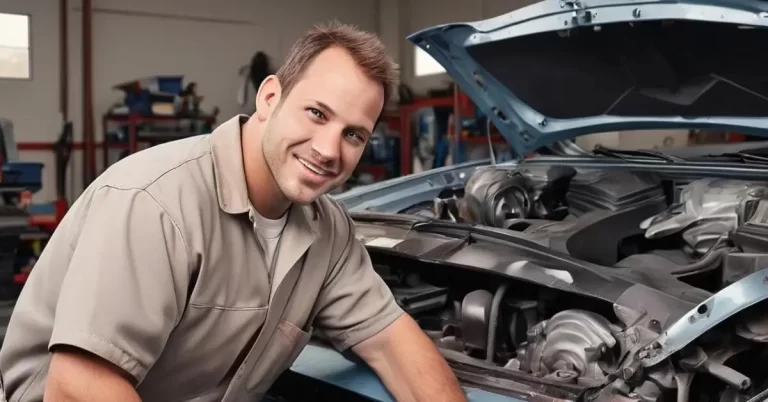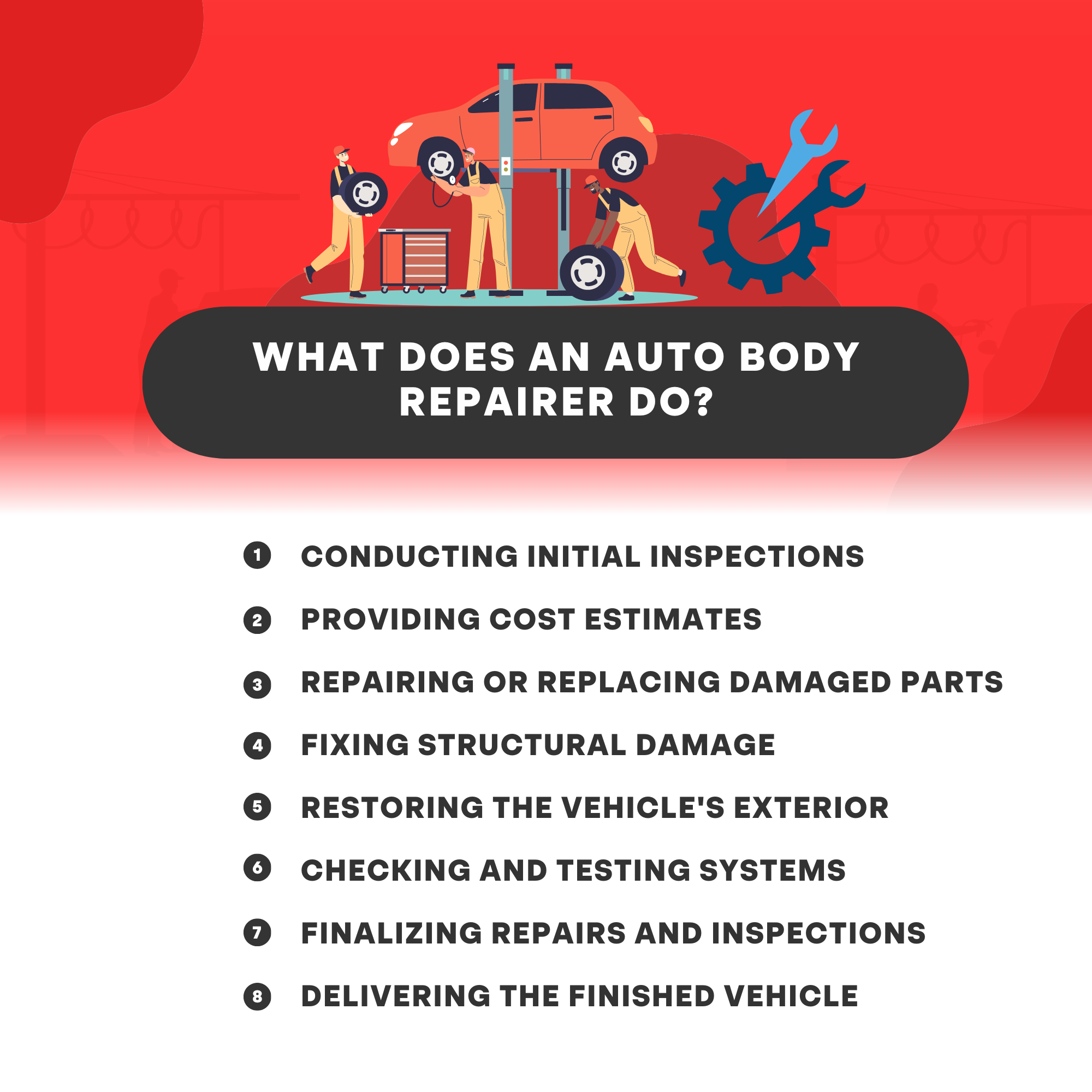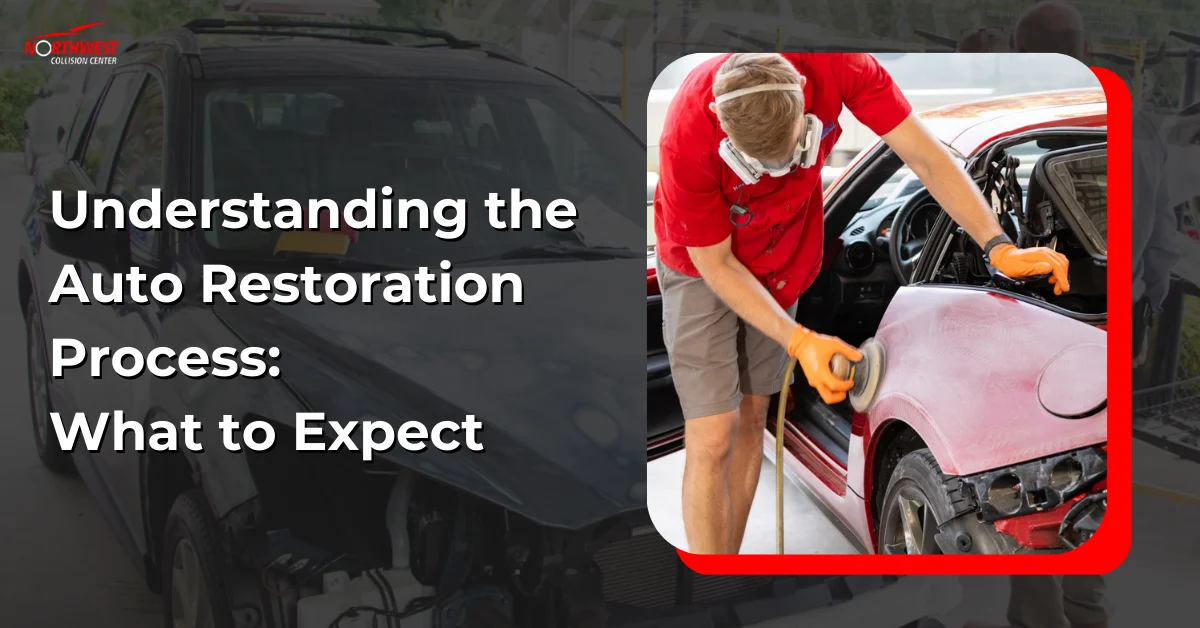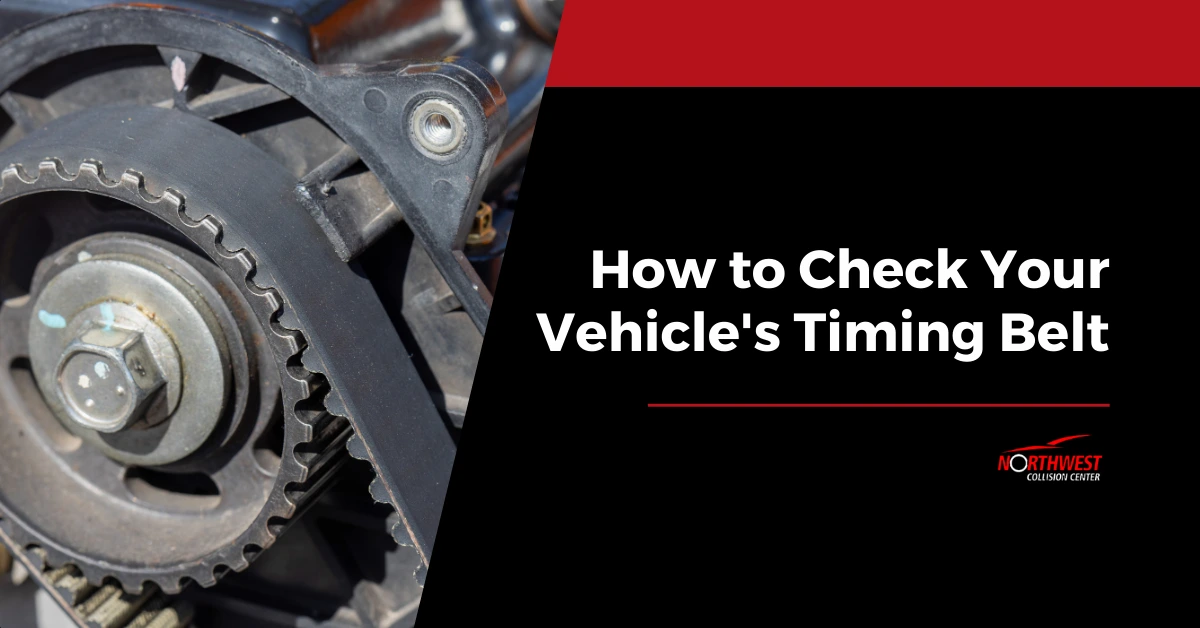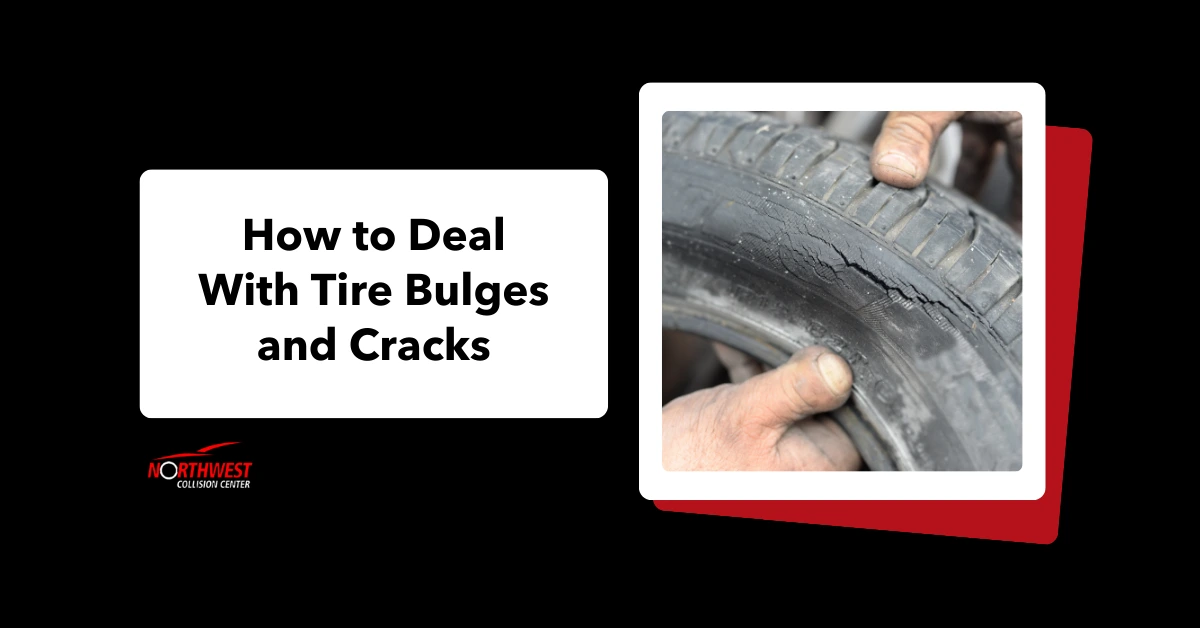Car accidents are unfortunate events that can cause significant damage to vehicles. When this happens, the services of an auto body repairer become crucial. These skilled professionals are the unsung heroes of the automotive industry, working diligently to restore damaged cars and trucks to their former glory.
If you’ve ever wondered what does an auto body repairer do, you’re in the right place. This blog post will give you a detailed look into the world of auto body and collision damage repairer and the important role these experts play in it.
What Is an Auto Body Repairer?
An auto body repairer, sometimes referred to as an automotive body repairer, is a skilled technician specializing in fixing and restoring vehicles damaged in accidents or other incidents. Their primary goal is to bring a vehicle back to its pre-damaged condition, both in terms of appearance and functionality.
Auto body repairers work on various types of vehicles, including cars, trucks, and motorcycles. They have in-depth knowledge of automotive systems and are proficient in using specialized tools and equipment to perform repairs. These professionals are well-versed in the repair and replacement of vehicle parts, such as frames, fenders, doors, and bumpers.
What Does an Auto Body Repairer Do?
The main responsibility of an auto body repairer is to assess the damage to a vehicle and develop a plan for its repair. This process typically involves:
1. Conducting Initial Inspections
When a damaged vehicle arrives at an auto body repair shop, the repairer carefully examines it to determine the extent of the damage. They inspect the vehicle from top to bottom, looking for both visible and hidden issues. This thorough evaluation helps them create a comprehensive repair strategy.
2. Providing Cost Estimates
After identifying the necessary repairs, an auto body repairer prepares a detailed cost estimate for the customer. This estimate includes the projected cost of parts, the labor required for the repairs, and any additional services needed to restore the vehicle fully.
3. Repairing or Replacing Damaged Parts
Once the customer approves the repair plan, the auto body repairer begins the actual work. Depending on the extent of the damage, this may involve repairing the existing parts or replacing them with new ones. Skilled repairers can fix many components, including doors, hoods, and trunks, saving the customer time and money.
4. Fixing Structural Damage
In cases where a vehicle has suffered significant damage, such as a collision, the repairer focuses on fixing the structural elements. Using specialized equipment, they carefully realign and reshape the vehicle’s frame to restore its original form. This step is vital in ensuring that the repaired vehicle is functioning properly.
5. Restoring the Vehicle’s Exterior
One of the essential tasks of an auto body repairer is to restore the vehicle’s exterior to its pre-damaged condition. This involves skillfully applying paint and other finishing touches, such as clear coats and polishes, to match the original color and texture. The goal is to make the vehicle look the same as it was when it was brand new.
6. Checking and Testing Systems
Repairing a vehicle isn’t just about fixing what’s visible; it also involves ensuring that all the systems are working correctly. As part of their role, auto body repairers conduct thorough checks and tests on the repaired components to verify their functionality. They may test the vehicle’s lights, alignment, and other systems to ensure everything is in proper working order.
7. Finalizing Repairs and Inspections
When all the necessary repairs have been completed, an auto body repairer carefully examines the vehicle to ensure the quality of their work. This final inspection aims to catch any overlooked issues and guarantees that the repaired vehicle meets the required standards.
8. Delivering the Finished Vehicle
The last step in the process is delivering the repaired vehicle to the customer. A good auto body repairer takes the time to explain the work that was done and addresses any concerns the customer may have. Their goal is to provide a seamless and satisfying experience, allowing the customer to get back on the road with confidence.
Skills and Qualifications of an Auto Body Repairer
Becoming a successful auto body repairer requires a unique set of skills, along with the following qualifications:
1. Technical Expertise in Auto Repair
Auto body repair is a technical field, and to excel in it, one must have a strong grasp of automotive repair concepts. This includes knowledge of vehicle systems, understanding of how different parts work together, and the ability to diagnose and fix problems efficiently.
2. Proficiency in Using Repair Tools and Equipment
An auto body repairer must be comfortable working with various repair tools and equipment. These may include wrenches, hammers, pneumatic tools, and computerized diagnostic devices. To execute repairs accurately and safely, one should be adept in using these tools.
3. Attention to Detail
Repairing a damaged vehicle requires a meticulous approach. A successful auto body repairer pays close attention to detail, ensuring that no aspect of the repair is overlooked. This includes identifying all damaged parts, accurately following repair plans, and achieving seamless integration of new and existing components.
4. Problem-Solving Skills
Unforeseen challenges can arise during the repair process, requiring auto body repairers to think on their feet and come up with effective solutions. Strong problem-solving skills are, therefore, a valuable asset in this line of work.
5. Patience and Perseverance
Restoring a damaged vehicle to its original condition can be a time-consuming and complex endeavor. Auto body repairers must have the patience and perseverance to tackle each repair task diligently, even when faced with difficult or intricate repairs.
6. Customer Service Skills
Interacting with customers is a regular part of an auto body repairer’s job. Good repairers possess strong customer service skills. They can promptly address customer concerns and communicate well with the customer. They understand the importance of providing a positive experience during a potentially stressful time for the customer.
7. Formal Training or Apprenticeship
While some auto body repairers have learned through on-the-job training, formal education or apprenticeship programs are increasingly preferred in the industry. These programs allow the trainee or apprentice to learn straight from experienced professionals.
8. Certification
Securing certifications from trusted institutions such as the Inter-Industry Conference on Auto Collision Repair (I-CAR), is a testament to an auto body repairer’s expertise and commitment to professional development. Many employers value certified repairers for their up-to-date knowledge and adherence to industry best practices.
Takeaway
Auto body repairers are skilled professionals dedicated to bringing damaged vehicles back to life. Their ability to assess and repair various types of damage is a testament to their technical expertise and attention to detail. If you’re considering a career in the field, remember that it requires patience, problem-solving skills, and a commitment to delivering quality service to customers.
Get the Best Auto Body Repair With Northwest Collision Center!
At Northwest Collision Center, we take pride in the dedication and skills of our auto body repairers. If you find yourself in need of auto body repair in Largo, FL, don’t hesitate to contact us.

